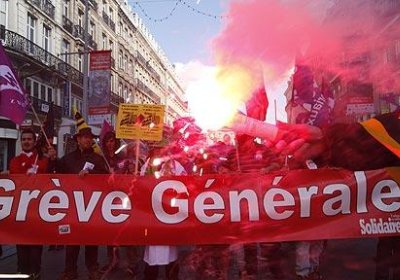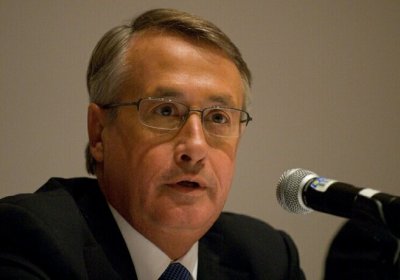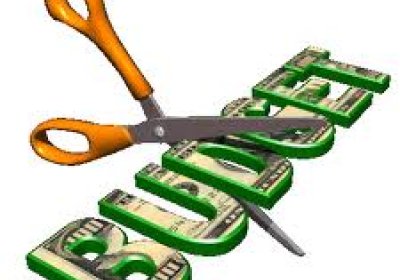When the global financial crisis (GFC) unfolded in 2008, the unemployment rate for 15 to 19-year-olds looking for full-time work in Australia increased from 15% to 25%. It has remained at this level ever since.
In July, it stood at 25.5%. However, in the 10 areas listed by the Department of Human Services as the most disadvantaged in the country, the youth unemployment rate is more than 40%.
Global Financial Crisis (2007–2008 financial crisis, GFC)
Portugal's working class brought the country to a standstill on November 24 to press the Socialist Party government to scrap its regressive cuts program.
The general strike against European Union-mandated austerity, the first to be organised jointly by Portugal's two main unions since 1988, is the country's largest ever stoppage.
Trains and buses did not run, planes were grounded and banking services halted.
“The Group of 20 countries [which met in Seoul over November 11-13] were supposed to have stamped out the financial market abuses at the heart of the global crisis but little seems to have changed since their last summit, analysts say.
“Hopes for reform after the market chicanery that brought down a series of ‘too-big-to-fail’ banks and sparked the worst slump since the 1930s have faded with the return of the ‘get rich quick’ mentality, according to analysts.
At first glance, you might have mistaken London’s packed streets on November 10 for a Mardi Gras carnival. There young faces and large grins, combined with incessant whistle-blowing, trumpet-blasting and drum-beating. All mixed together to form the din of student protest.
The noise took shape and all of a sudden burst from the centre of the crowd, picked up by everyone else: “No ifs, no buts, no education cuts” — the main chants of the 50,000 students marching forward from Westminster to the destination of the Milbank headquarters of the Conservative Party.
“Rise like lions after slumber/In unvanquishable number!/Shake your chains to earth, like dew/Which in sleep had fall’n on you/Ye are many —they are few.”
These days, the stirring lines of Percy Shelley’s “Mask of Anarchy” from 1819 may seem unattainable. I don’t think so.
Shelley was both a Romantic and political truth-teller. His words resonate now because only one political course is left to those who are disenfranchised and whose ruin is announced on a British government spreadsheet.
The Mid Year Economic and Fiscal Outlook (MYEFO) released by treasurer Wayne Swann on November 9 shows that Labor is betting on the minerals boom continuing. While admitting that the global economy remains tenuous, and that the whole house of cards could collapse, it has no “plan B”.
“The update forecasts strong growth, falling unemployment and a big pipeline of investment that’s gathering momentum”, Swann said.
Republicans are trumpeting their big gains in the November 2 midterm elections as a mandate to turn the country sharply to the right. Don’t buy it. Mainstream media commentary on the election was largely set before a single vote was cast. Voters would correct President Barack Obama’s supposed leftward course in his first two years in office by sending a cabal of right-wingers to Congress. The scale of the Republican victories — especially in House of Representative races, where the party now holds a comfortable majority — cemented the media’s impressions.
The Conservative Party, or Tories, has never really forgiven the British working class for demanding and winning the creation of the “welfare state”. Gains won included such things as free health care, council homes at affordable rents, and care for the elderly and vulnerable.
From the Tories’ point of view, these are all things individuals should sort out for themselves. The modern state should provide the same level of social protection as was available to Queen Victoria’s subjects in the 19th century.
The Irish Republic’s government said on November 4 that it wants to slash 6 billion euros from its 2011 deficit, MorningStarOnline.co.uk said the following day. The cuts were announced despite the government admitting it would lead to lower economic growth.
Ireland’s deficit is set to reach an astronomical 32%, MorningStarOnline.co.uk said, mainly because the government’s bailout of the banks with public funds cost 31 billion euros.
The country has already endured two years of recession driven by the bail-out costs and a doubling of unemployment to 13.6%.
Since October 12, France has been gripped by intensifying mass opposition by workers and students to proposed counter reforms to the country’s pensions system by the right-wing government of President Nicolas Sarkozy.
Public opposition to the attack has been highlighted by three national strikes each involving millions of people, two national student strikes and a growing wave of indefinite strikes in a range of industries — most notably the crippling shutdown of the oil industry.
A million trade unionists marched past Rome’s Colosseum on October 16 in defence of rights that Prime Minister Silvio Berlusconi’s government and Fiat bosses are trying to water down.
The attacks are part of the government’s “deficit reduction” measures.
Under red flags, and the banners of the metal workers’ union (FIOM-CGTI), workers from metal and other industries, students and opposition politicians shouted: “Strike, strike, strike!”
When US director Danny Schechter’s 2006 film In Debt We Trust predicted a huge financial crisis was coming, he was laughed at. It turned out he was right.
His latest film, Plunder: The Crime of Our Time shows how the crisis was created by Wall Street bankers breaking the law to manipulate the markets — and suggests a bigger crisis is on the way.
- Previous page
- Page 2
- Next page









